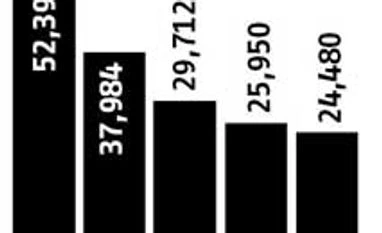Sebi Chairman U K Sinha, speaking on Friday at a corporate governance conference, Gatekeepers of Governance, said the huge cash piles of certain companies was a worrying signal. The Sebi boss cited global examples where shareholders were expressing dissent against companies ‘hoarding cash’. The work is currently at a preliminary stages and any policy would be formed only after market consultation, Sinha said.
According to an analysis by Business Standard, the total cash balance of the top 500 companies was more than Rs 5 lakh crore as of April 2014.
Companies with high cash levels include government-owned Coal India with cash holding of Rs 52,000 crore, followed by the Mukesh Ambani-led Reliance Industries with a cash balance of Rs 38,000 crore.
“Nobody is saying the entire cash be paid but there should be a dividend policy that if the company is making profit, an ‘x’ amount will be distributed,” said Sinha, adding the final announcement in this regard might take time and discussions on having a dividend policy were in initial stages.
“This is a completely mis-placed fear,” said Sinha, when asked whether Sebi’s new circular on p-notes will impact flows. “We have done a complete analysis of the data. Be assured it won’t impact flows.”
Investors not directly registered with Indian regulators opt for the p-note route, a quick and easy way of investing. Foreign institutional investor (FII) flows into Indian equities and debt have been at least $40 billion so far in the calendar year. As of October 2014, p-notes accounted for 12 per cent of total FII assets.
On the new de-listing regulations, Sinha said Sebi had tried to address a lot of irritants. Under the new regulations, an entity making an open offer will be able to simultaneously go for a de-listing bid.
Earlier, a promoter group or an entity after an open offer had to first bring down its holding to below 75 per cent, the maximum an entity is allowed to hold in a listed company, and later go for de-listing. “The two-stage process can be done away with,” said Sinha.
He further said the rule on 25 per cent participation from public shareholders was introduced to ensure promoters don’t go ahead with a de-listing bid without contacting the shareholders. “I would expect a corporate wanting to de-list to make a serious attempt to reach out,” said Sinha.
)